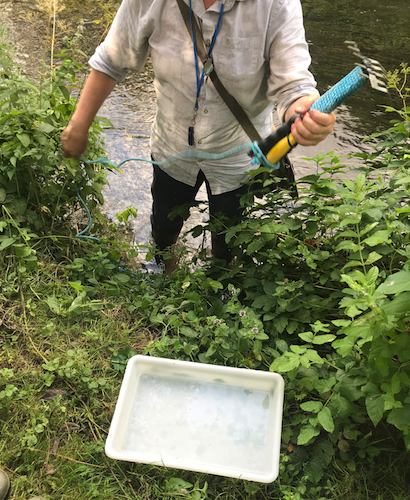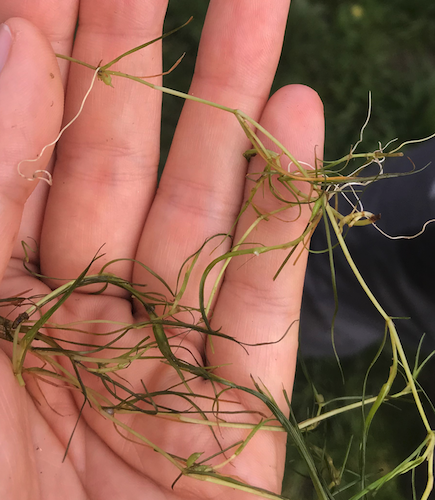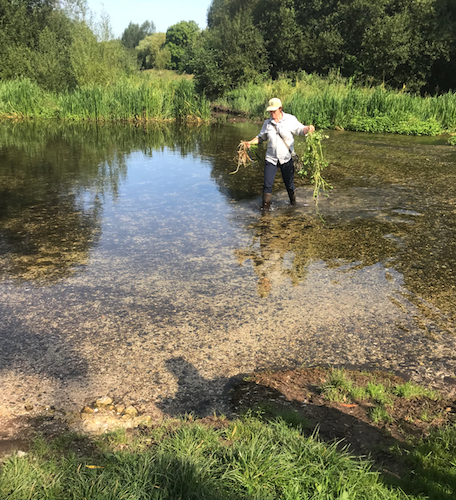Ecologist Lindsay Stronge recently attended a Species Recovery Trust training course on identifying aquatic plants.
Lowland rivers and streams support unique plant communities and many of them are difficult to identify. This one-day course, led by expert botanist Sharon Pilkington, provided an engaging introduction to some of these groups at a chalk river, the Wylye, in Wiltshire. We looked at submerged and emergent plants and associated wetland plant communities on the banks of the river.
England is estimated to contain 160 of only 210 true chalk streams that exist globally. They are an Annex 1 habitat type under the Habitats Directive and characterised by floating mats of water crowfoots (Ranunculus spp.). This group hybridises freely and identification of the subspecies is complex so we started the day with simpler tasks- learning to separate rigid hornwort (Ceratophyllum demersum) from spiked water-milfoil (Myriophyllum spicatum) and identifying the distinctive banana-shaped fruits of horned pondweed (Zannichellia palustris). Sharon introduced us to her own handmade grapnel (two hand garden rakes tied back to back!) and we practiced deploying it in the Wylye to extract some specimens.
We also learned to spot Nuttall’s waterweed (Elodea nuttallii) a Schedule 9 invasive, non-native species that can quickly choke up slow-flowing rivers with its growth. It causes large fluctuations in the oxygen levels in the water which can have adverse affects on fish and invertebrates. Later in the day we examined several duckweed species (Lemna sp.) Fat duckweed (Lemna gibba) can form swollen convex leaves and has an arrangement of large cells on the underside which are reminiscent of honeycomb. Ivy-leaved duckweed (Lemna trisulca) is usually submerged rather than floating and has translucent forked thalli.
As always, Species Recovery Trust botany courses offer an accessible and engaging introduction to some of the more difficult plant groups and I would really recommend this to anyone who wants an introduction to aquatic plant communities. Sharon’s key to river plants will prove very useful in future!






